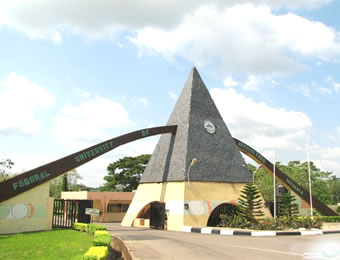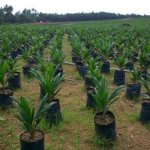The Federal University of Agriculture, Abeokuta (FUNAAB), recently played host to members of the Nigerian Meteorological Society (NMetS), during the International Conference and 30th Annual General Meeting of the group themed, ‘Climate Variability and Change: Impact, Science, Innovation and Policy.’
Speaking at the event, the Vice-Chancellor of the institution, Professor Olusola Oyewole, represented by the Deputy Vice-Chancellor, Development, Professor Ololade Enikuomehin, described climate change as the most important environmental challenge confronting humanity in the 21st century.
According to him, “Climate change and its resultant environmental challenges of flooding, soil erosion, coastal surges, drought, desertification, pollution, wild fire, heat waves and others, constitute threats to all aspects of life at the local, regional and global levels. The impact of climate change and variability constitute security challenge, especially, in the areas of agriculture and food security, water resources, biodiversity, social economic activities and human security.”
He also noted that the consequences of climate change do not recognise political boundary, which informed the concerted efforts at solving the issue at local, national, regional and global levels. He appreciated the global efforts that had been geared towards solving the issue of climate change at different levels and those also channeled towards assisting developing countries to adapt and mitigate the consequences of climate change.
In his keynote address, Professor Emmanuel Oladipo of the Department of Geography, University of Lagos, submitted that climate change posed a serious threat to the nation’s sustainable development drive and “unless significant response strategy was put in place and implemented at both global and national levels, it may become a substantive shock to Nigeria’s effort to reduce pervasive poverty, create jobs, enhance people’s access to sustainable energy and improve the overall socio-economic well-being of its citizenry, as enunciated in the objectives of the country’s Vision 20:2020.”
The Vision 20:2020 is a dream statement that Nigeria will become one of the first 20 economies in the world by year 2020.
Professor Oladipo advised that Nigeria should put in place, a well-defined climate change response framework that would incorporate critical elements of mitigation, adaptation and technology transfer, which, according to him, should be backed up by adequate financial and capacity building support.
President of NMetS, Professor Clement Akoshile, had stated that meteorological forecasts could have proved to mitigate significantly, the factors of extreme weathers being experienced in different parts of the world. He said that NMetS international conference holds once a year, where research and technical findings are reported and discussed. He added that contributions from the conference had helped in no small way to improve the quality and safety of life in Nigeria, and he also said that the society had worked hand-in-hand with the Nigerian Meteorological Agency (NiMet), especially in the area of weather forecasting.






